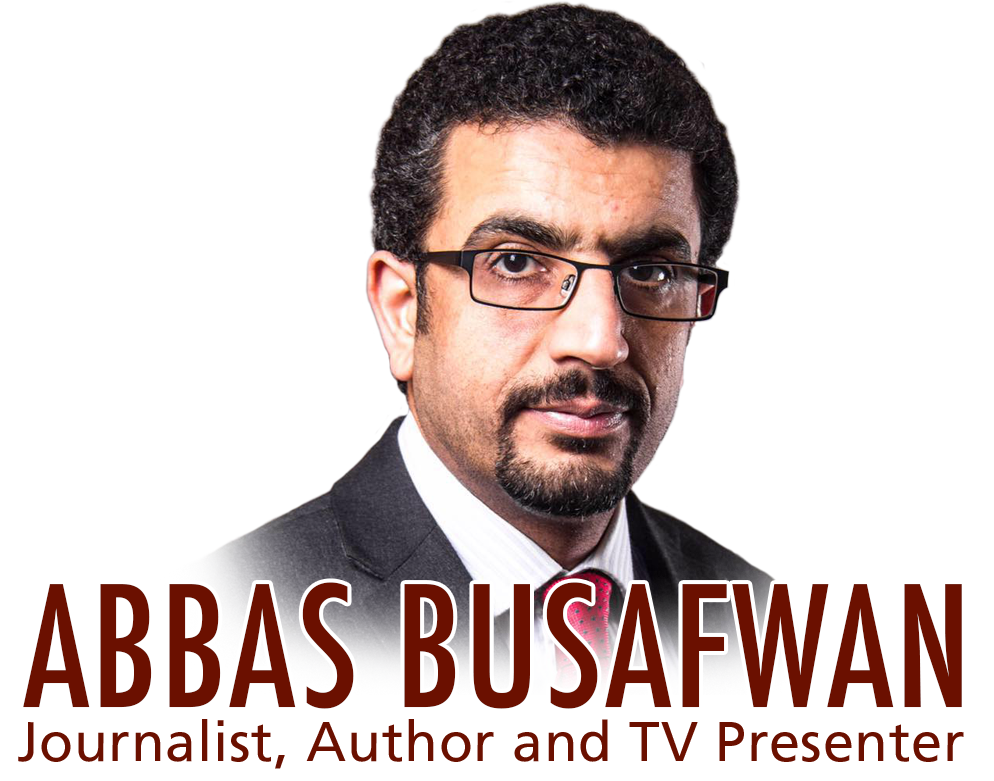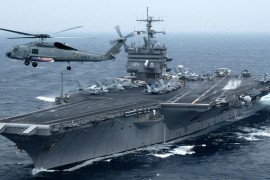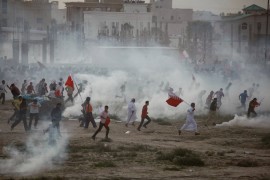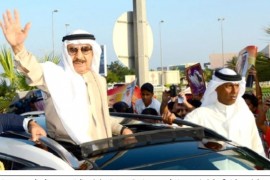Muslim Brotherhood in Bahrain: The Pleasant Model in the Arab World
Abbas Busafwan:-
This paper discusses the future of the Bahraini arm of the Muslim Brotherhood Group, after the Group was declared a terrorist organization by Egyptian authorities, and after Egypt addressed many states, the United Nations and the Arab League to place Muslim Brotherhood on Terrorism Lists.
The focal question here concerns the manner in which Bahraini authorities will deal with the Controversial Egyptian decision and with Saudi and UAE pressures on Brotherhood groups in the Gulf and Arab states. What will their position be towards the group’s Bahraini arm, which has long been considered as an ally of the state, and grown with the succession to throne of Shaikh Hamad.
The Gulf Approach Towards the Muslim Brotherhood
I, point, first of all, at the different approaches by the Gulf states towards the Group which was ruling Egypt before the Military Coup in the middle of last year (2013), and the harsh measures that followed it against what was believed to be the largest Islamic political group in the region.
Saudi Arabia had never concealed its utter displeasure with the fall of President Mubarak. After several attempts to absorb the shock, Riyadh moved into the offensive. It did not imagine that deposing President Morris will be so “smooth” both regionally and internationally. The Brotherhood arms, busy with themselves, in various Arab States, did not move after the killing of thousands in Rabe’a Al-Adawiyah Square, in Cairo. It seems that the outcry – by Shia’s and others – which accompanied the attack on the Pearl Square in Manama by the Saudi & Bahraini Armies in March 2011, was louder than that which followed the assault on Rabe’a Al-Adawiyah. The Saudi enmity towards the other is not hidden, while the extremist Saudi leadership has not taken into its considerations damaging Egypt’s position, while bringing down a model which was not promising, in any case.
The UAE position was more explicit in refusing the Brotherhood’s grab of power. The UAE authorities took unprecedented measures against the Brotherhood Group in the UAE.
Measures which many see as being based on fears rather the facts. The UAE intelligence authorities raised their voice, leading a Gulf and regional campaign against the Brotherhood, which seemed to have failed in comprehending the size of the conspiracy against it, and went on with it monopolistic approach in Egypt, and sectarian and distracted approach abroad.
The Brotherhood in Kuwait had broken their organizational ties with the Group’s international umbrella, after what was considered to be a Brotherhood understanding of Saddam Hussain’s invasion of Kuwait in Summer 1990. However, the Kuwaiti arm remained active inside, and continued to support opposition demands for the appointment of a popular Prime Minister, i.e from outside the Al-Sabah Ruling funnily, a demand which had a lapse, at least temporarily. In fact, the dreams of the Arab spring as a whole are far from being realized three years after the outset of the so called spring.
The Kuwaiti authorities unlike Egypt or the UAE refrained from taking any harsh action against their Brotherhood apposition. They distanced themselves from the Egyptian decision to ban the Muslim Brotherhood and consider them a terrorist organization. An official spokesman for the Kuwaiti Interior Ministry was quoted as saying that, “the said decision concerned Egypt and that they had their own security and political circumstances which differ from those in Kuwait, where the country is secure and stable and the citizens are loyal to their homeland, Kuwait”.
On its part, Qatar is maintaining its strong ties with the Muslim Brotherhood, and providing them with financial and political support. News about Egypt are still top news on Al-Jazeera TV Channel, although the image of the most prominent Brotherhood leader a broad, Yousuf Al-Qaradhawi, has been tarnished, after he emerged over the past three years, as one of the Sultans Preachers ]a cleric who justifies by religious edicts (fatwas) all that is committed by the rulers[. He got so deeply involved in the sectarian battle, that he lost all his respect as a president of Muslim Scholars Federation. There is no doubt that such a loss deprived the Egyptian Group the “Soft power” element, which is one of the most important elements of the battle.
On October 3, 2013, the King of Bahrain made the first visit by a Gulf Leader to Egypt after Adly Mansoor took power as the temporary president of Egypt, thereby expressing his support for the Army in its bid to oust the Muslim Brotherhood. On February 8, 2011, King Hamad had sent his former Intelligence Chief Khalifa bin Abdulla, in support of Hosni Mubarak who was facing the strongest popular campaign which led to his exit from the political arena together with his national party, but the military and Mubarak’s old crew managed to regain power in Egypt, for reasons, some of which may be attributed to mistakes made by the Muslim Brotherhood who must understand the magnitude of the tragedy they caused to the Egyptian spring and the Arab Spring.
While King Hamad stood against the Brotherhood in Egypt, supporting Saudi Arabia and he UAE, his hands were always extended to the Brotherhood in Bahrain, who had encouraged Al-Khalifa terrorism, and went on supporting the existing dictatorial and corrupt approach. It is most likely the official Egypt, together with Riyadh and Abu Dhabi support Al-Khalifa allinace with the Brotherhood in Bahrain, and understand the essence of the policies adopted by the Bahraini arm of the Brotherhood, which has always been opposed to the democratic developments in Bahrain and the region, as will be explained (1).
The Brotherhood in Bahrain
The Muslim Brotherhood in Bahrain comes under the Reform (Islaah) Society, which is an influential religious, social and charity society with widespread support, established during the fifties of the twentieth century. It is noteworthy that the so-called “Howala” in Bahrain are gathering in this society. Howala in Bahrain are either Arabs traveling between the two shores of the Gulf or Sunnis of Persian origins. The Islamic Forum (Menbar) Society is the political arm of the Muslim Brotherhood.
As for Sunni Arabs (The tribes) they traditionally come under the Islamic Education Society, whose political arm is Al-Assalah Society. So, the Sunni split is ethnically clear, between Arabs and Howala, in the formation of these two societies. The Howala represent the Majority of Sunnis in Bahrain, while Arabs represent the Majority of Shia’s in Bahrain, and belong to al-Wefaq National Islamic Society, while the Shia’s of Persian origin (Ajams) come under Al-Ekha’a Islamic Society. Sometimes, it might be correct to use the two terms Muslim Brotherhood and Howala as leading to one meaning. It is true that not all Howala are Muslim Brotherhood, but the subject here is like Al-Wefaq Society being the most prominent representative of Shia’s in Bahrain, although not all Shia’s are members or supporters of Al-Wefaq.
Dominating the Management of the Financial Sector
Bahrain was turned into a fomous financial center after the outbreak of the civil war in Beirut in 1975. Although Dubai and Qatar have shown significant rivalry with Manama during the past two decades, the contribution by the financial sector towards GDP in Bahrain is still good, standing at 16.8%.
Bahrain houses some 110 banking institutions with assets amounting to US$ 193.5 billions, out of which US$ 26.2 billion are assets of 24 Islamic Banks, according to the statistics of August 2013. Sectarian discrimination in the financial sector has reached a level equal only to that in the Military sector. You hardly find any Shia’s in leadership positions in both sectors. The presence is limited or non-existent, in lower ranks, and as ordinary employees. The Army is controlled by Arab Sunnis led by Al-Khalifa and their tribal allies. While the Financial Sector is run by the Howala Sunnis who are almost completely prohibited from holding any prominent positions in the Military.
While the Prime Minister focused on discrimination in the financial sector whose construction took place under his supervisions, and excluded the Shia’s from it, the King focused on keeping the patriotic Shi’a elements out of Army, whose construction has taken place under his supervision since the sixties of the past century.
Any observer will not face any real problem in discovering the domination of the Financial Sector by the Howala and Muslim Brotherhood, by a quick look at the names of Board Chairmen in both banks whose major shareholder is the state or those considered as private sector, whether retail or wholesale, or banks of Islamic nature.
As a strange indicator of the extent of discrimination in the financial institutions is that the number of those fired on the background of February 2011 protests from the financial sector was 24 as per the Ministry of Labour figures out of total of 4400 Bahrainis, 2000 of whom were from the public sector and 2400 from the private sector as per Bassuini’s report. This is because Shi’a citizens are hardly allowed to work in the Banking Sector. They are also not allowed to join the Military. It is noteworthy that according to the statistics of May 2013 some 572 have not be reinstated yet.
(1) Abbas Bu Safwan: Why is Al-Fateh Gathering ashamed of being called Loyalists – 2, October 2011





